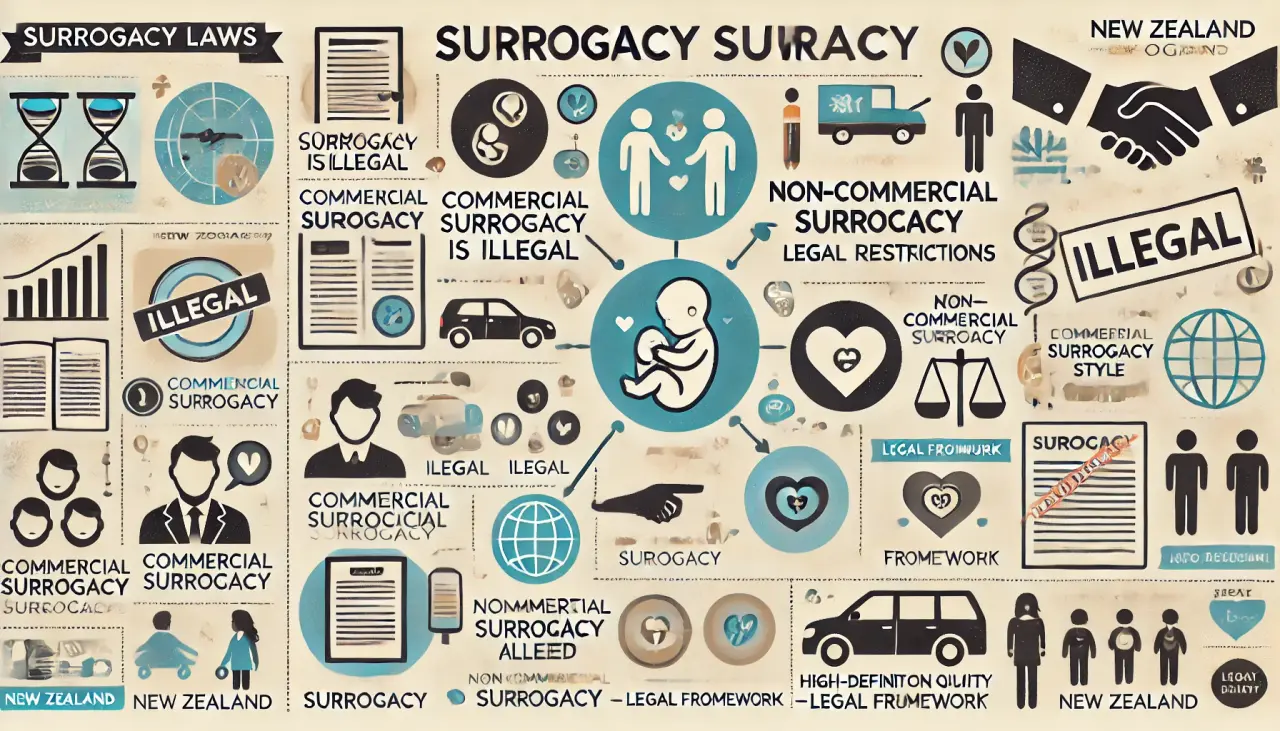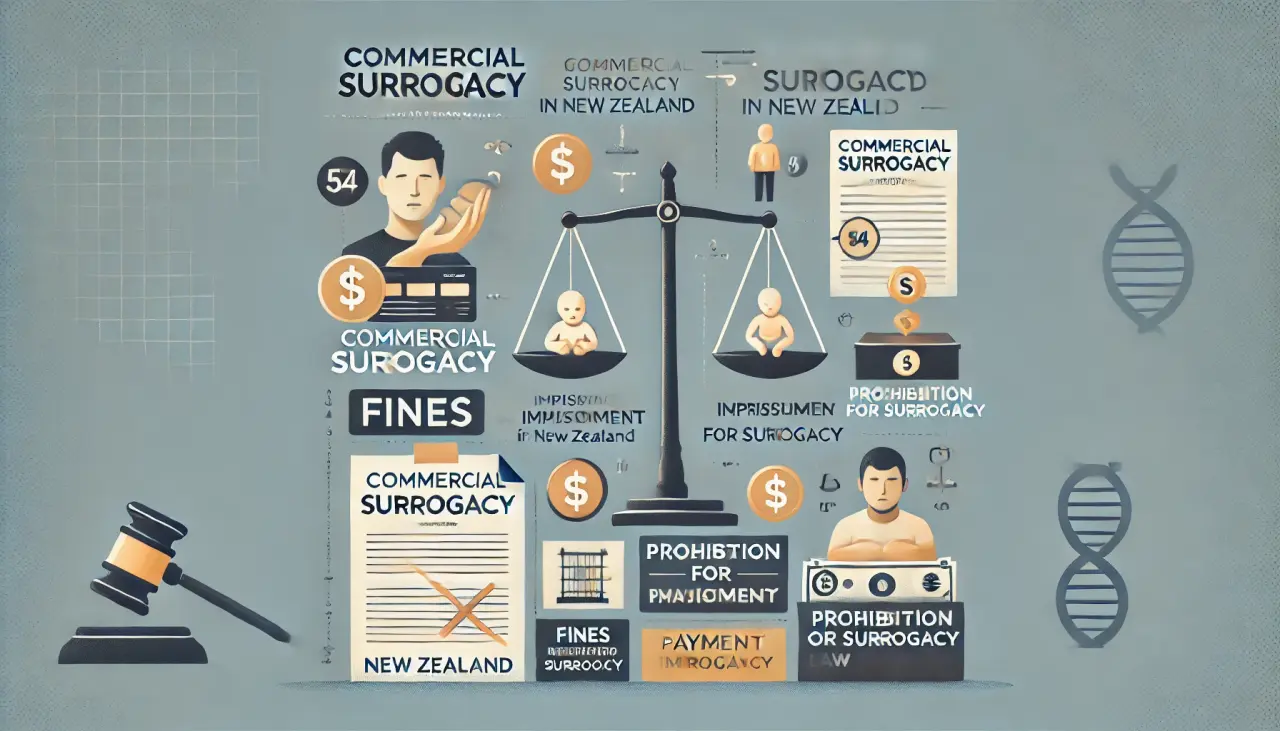
Surrogacy in New Zealand: Legal Provisions, Commercial Surrogacy, and New Zealand Surrogacy Law
This article explains the legal framework for surrogacy in New Zealand, focusing on the Human Assisted Reproductive Technology Act 2004. It is important to note that commercial surrogacy is prohibited in New Zealand, whether it takes place within the country or abroad. New Zealand citizens or permanent residents involved in commercial surrogacy will be in violation of criminal law.

Section 14: The Status of Surrogacy Arrangements and Prohibition of Commercial Surrogacy
1. Surrogacy Arrangements are Not Illegal in Themselves
Surrogacy arrangements are not illegal under New Zealand law. However, commercial surrogacy is not allowed. This means no one is permitted to perform or be part of such an arrangement in a commercial capacity.
2. Impact of the Status of Children Act 1969
Section 14(1) does not affect the Status of Children Act 1969, Part 2, which governs the legal status of children in surrogacy arrangements. This Act is important to note when considering the legal framework of surrogacy in New Zealand and how it applies to the rights of the child involved in a surrogacy process.
3. Criminalizing Payments for Surrogacy Involvement
Payments related to surrogacy arrangements are strictly prohibited. Any individual who gives or receives payment (or agrees to do so) in exchange for participating in a surrogacy arrangement, or for arranging for another person to be involved, is committing a criminal offense. This includes both parties directly involved in the surrogacy and any intermediaries.
4. Exceptions to Criminalization of Payments
While commercial surrogacy is banned, certain payments related to non-commercial surrogacy are exempt from criminalization. These include reasonable and necessary expenses paid for:
- Collection, storage, transportation, or use of human embryos or gametes (eggs or sperm).
- Providing consultation regarding the surrogacy agreement to one or more parties involved.
- Performing artificial insemination or in-vitro fertilization (IVF).
- Conducting ovulation or pregnancy tests.
- Payment to legal advisors for providing independent legal consultation to women who are pregnant or potentially pregnant under a surrogacy arrangement.
5. Penalties for Violating the Law
Anyone who violates the provisions in Section 14(3) could face serious legal consequences:
- Up to 1 year of imprisonment.
- A fine of up to NZD 100,000.
- Or both imprisonment and fines.

Key Takeaways
- Commercial surrogacy is illegal in New Zealand, including surrogacy arrangements made overseas.
- Non-commercial surrogacy (where there is no financial compensation beyond reasonable expenses) is allowed.
- Payments to cover medical, legal, and related expenses are exempt from criminal penalties but must remain reasonable and necessary.
- Violating the surrogacy law could result in serious legal consequences, including imprisonment and heavy fines.
For more guidance on New Zealand surrogacy law or specific legal advice regarding surrogacy, it is advisable to consult with a legal expert.